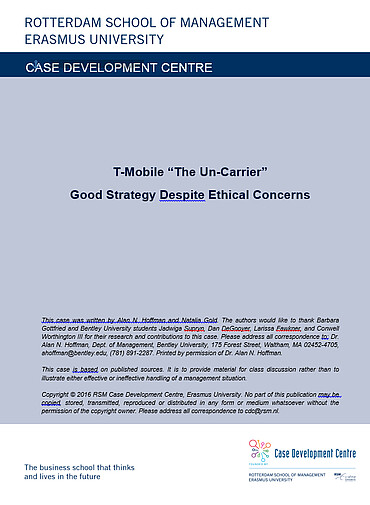Citation Note
Based on field research; 11 pages.
Follow the 'handle' link to access the Case Study on RePub.
For EUR staff members: the Teaching Note is available on request, you can contact us at rsm.nl/cdc/contact/
For external users: follow the link to purchase the Case Study and the Teaching Note.
Abstract
T-Mobile competes in the red sea of telecom market. As a low cost price leader, T-Mobile invested heavily in the customer experience and service that paid off: It is ranked number one in customer satisfaction and how consumers valued the company. While T-Mobile chalked up success after success, cases filed against the company pointed to illegal labor practices promulgated at the corporate level that were viewed as systemic practices in the company as a whole. Complaints filed against T-Mobile included preventing employees from organizing in collective bargaining units, firing employees who reported concerns about T-Mobile’s practices of over-billing consumers, and discriminating against women. T-Mobile seemed to have a dual personality with regard to employee engagement. The company intimidated employees who expressed labor concerns or attempted to unionize, while at the same time encouraging employees, vendors and suppliers to act with integrity and report observed instances of misconduct or ethical noncompliance. One thing was clear, however: in order to remain competitive, T-Mobile would have to improve competencies in labor and employee relations.
